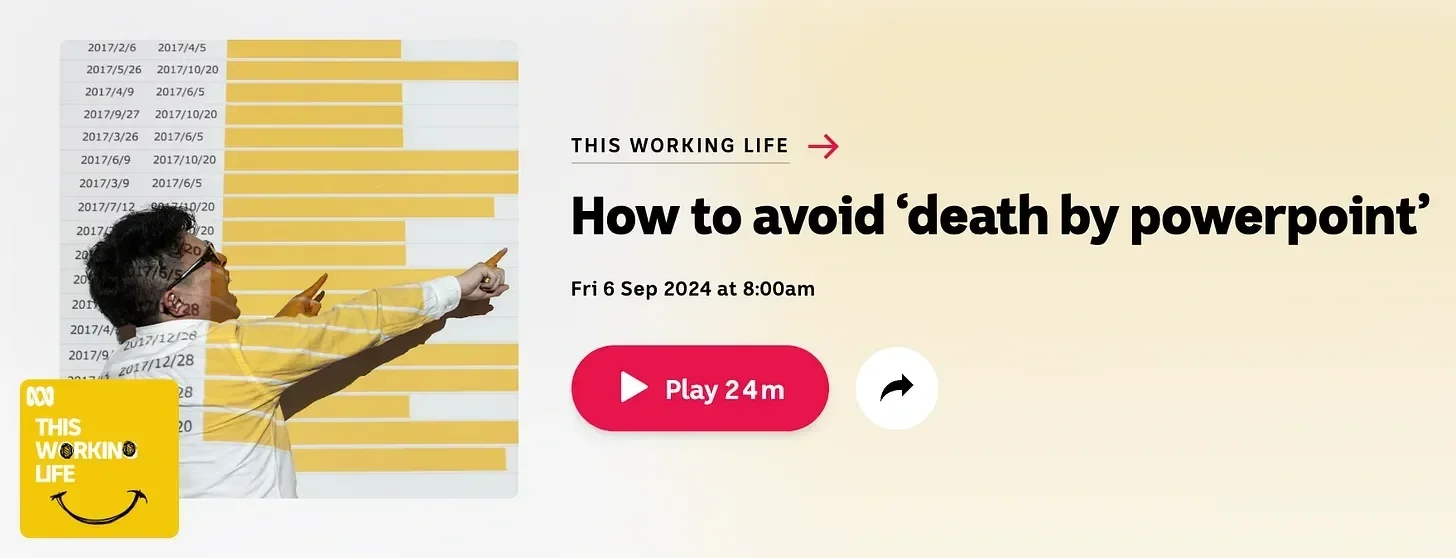Caveating yourself, if that makes sense?
All hail the subtle caveat. (Or not).
Hi friends,
It’s true: it’s hard to feel powerful in a room which might judge us for a bad idea or being ill-prepared, so we over-rotate and play small by giving caveats.
One of my clients, Aimee says, “I usually begin with the phrase, “I’m sure you’ve already thought of this” like a stealthy beginning. I know it’s bad, but I do this just so I don’t annoy anyone at the table – maybe they’ve already thought of the idea.”
Giving a caveat like this at the outset is such a fast way to lose credibility or diminish oneself.
It’s in a very similar genre to other caveats such as: “I’m not an expert but…” or “I’m not across this like you are but…” or “This might be wrong but…/I don’t know if this is right, but….?”
Honey, I shrunk the executive.
These are classic what I call Imposing Syndrome flags: what we sense when we say these is a degree of impending judgement for an opinion or that our opinion might impose on the group to an unlikeable degree.
Maybe we’re pushing back against what everyone else thinks, or expressing doubt about a plan, so we try to soften it by diminishing ourselves. Or maybe we’re just genuinely unsure.
Think of it this way: Imagine if you went to see a mechanic and asked what was wrong with your smoking car, and they said, “Well, I’m not actually an expert in cars, but it might be, like, a blown gasket? Or the muffler? I’m not sure.” It just doesn’t engender confidence!
Imposing Syndrome can mess with our internal powerful/likeable binary because it exists exactly at that pressure point; right at the painful intersection where we want to exert our power, but we also worry about being That Guy.
In these moments, Imposing Syndrome can show up uninvited and ready to party: its insistence is super loud and hard to wrangle with. While it might feel like hedges are softening the blow or making it less obviously strident, a caveat or disclaimer hints or warns others that we are on wobbly terrain and in some senses, that we shouldn’t be trusted. And I suspect we’re often giving these caveats to seem approachable, humble, and kind. We’re leaning into the likeable side at the expense of having any power in the interaction.
Invitation: If caveats are your thing, again, note where and when you might be giving them. Does it happen with a particular person or in a particular situation? Spend the next week or so noticing if they come up again, and decide if they feel appropriate or if you’d like to experiment with changing them.


